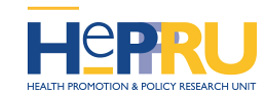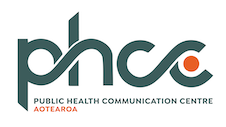The research groups within the Department of Public Health at our Wellington campus carry out a range of research on critical public health issues. These include cancer and screening, healthy eating, health services research and prioritisation, housing, sustainability and the environment, inequalities, infectious diseases, Māori health and tobacco.
Current research groups
ASPIRE Aotearoa
ASPIRE Aotearoa is a partnership between major Aotearoa New Zealand research groups carrying out research to help achieve the Government's goal of a tobacco-free Aotearoa by 2025.
Burden of Disease Epidemiology, Equity and Cost-Effectiveness Programme (BODE³)
The Burden of Disease Epidemiology, Equity and Cost-Effectiveness Programme (BODE³) has an aim to estimate health and wider societal gains, costs, cost-effectiveness and equity impacts of health sector interventions, and build capacity in modelling of health sector interventions. We do this from rich NZ data and a basis of epidemiological methods, intersected with simulation modelling, and with costs and economics layered over the top. We are focused on knowledge gains that also reduce inequalities, and building capacity. BODE³ is a Health Research Council (HRC) funded programme, previously funded from 2010-2015 and renewed for 2016-2021.
Cancer and Chronic Conditions (C3) research group
 The Cancer and Chronic Conditions (C3) research group is a collaborative group of researchers working at the interface between public health, health services research, and clinical medicine, drawing on the methods of epidemiology and the social sciences.
The Cancer and Chronic Conditions (C3) research group is a collaborative group of researchers working at the interface between public health, health services research, and clinical medicine, drawing on the methods of epidemiology and the social sciences.
Our work includes a range of projects aimed at reducing the impact of cancer and chronic conditions on population health and health inequalities through policy and health system change.
A major focus of our work is multi-morbidity and the way in which co-occurring chronic conditions are managed in the health sector.
Co-Search: COVID-19 Research Collaborative
 Co-Search is a research collaboration that aims to guide an effective and equitable pandemic response in Aotearoa New Zealand, and to learn how resilience and future responses can be improved.
Co-Search is a research collaboration that aims to guide an effective and equitable pandemic response in Aotearoa New Zealand, and to learn how resilience and future responses can be improved.
EleMent: Mental health research: Raraunga Hauora Hinengaro
EleMent (EleMent: Mental health research) are a multidisciplinary research group bringing together expertise in epidemiology, public health and data science with clinical and lived experience of mental distress. We use existing electronic data from health records and other sources to understand the distribution and determinants of mental health and mental distress in New Zealand. Our focus is on making the best use of available information to improve the mental health of New Zealanders.
Health Environment and Infection Research Unit (HEIRU)
The Health, Environment and Infection Research Unit (HEIRU) is a collaboration of researchers focused on the impact of infectious diseases and adverse environmental factors on population health. We use a range of research methods to investigate these health concerns; to identify effective interventions to reduce the burden of disease and inequalities; and to support the move to greater environmental sustainability. HEIRU aims to provide evidence-based recommendations and advice to support New Zealand and international agencies and practitioners in their disease prevention and control activities.
Health Promotion and Policy Research Unit (HePPRU)
The Health Promotion and Policy Research Unit (HePPRU) aims to foster excellence in research in health promotion and public health policy. HePPRU works in collaboration with policy-makers and policy advocates to advance the good health of the peoples of Aotearoa/New Zealand through independent, critical and innovative research, teaching, and community service.
He Kāinga Oranga/Housing and Health Research Programme
He Kāinga Oranga, the Housing and Health Research Programme, examines and clarifies the links between Housing and Health. Although the association between poor housing and ill health is known, the links that make up the causal chain have until recently been poorly understood. Conducting our own studies and examining existing evidence enables us to identify and evaluate housing-related interventions to improve individual, family and community health. Our multi-disciplinary team has expertise in both qualitative and quantative disciplines.
HIKO ebike pilot
The HIKO pilot aims to provide information on how ebikes can potentially promote transport equity and low carbon transport choices, whilst improving wellbeing, for Māori and Pasifika whānau. The HIKO pilot project provides 25 participants, predominately based in Wainuiomata, with a long-term loan of an e-bike at no charge for six months. The project is being run by Kokiri marae and researchers at the University of Otago Wellington are researching the outcomes of the project in partnership with Kokiri.
Integrated Data Research Group
The Integrated Data Research Group is a collection of University of Otago Wellington researchers using big data to answer health and social research questions. We are experienced with a range of data sources including the Integrated Data Infrastructure and the Ministry of Health's national collections. Our research interests span a range of areas including housing, mental health, and health economics.
New Zealand Centre for Sustainable Cities
The Centre for Sustainable Cities is an inter-disciplinary research centre dedicated to providing the research base for innovative solutions to the economic, social, environmental and cultural development of our urban centres.
Public Health Communication Centre
The Public Health Communication Centre is an independent research and communication organisation hosted by the University of Otago. The Centre provides high-quality analysis and commentary from Aotearoa’s public health community through The Briefing. It communicates research findings and evidence to the public, media and decision-makers.
Te Rōpū Rangahau Hauora A Eru Pōmare (Eru Pōmare Māori Health Research Centre)
Te Rōpū Rangahau Hauora a Eru Pōmare strives to create a Kaupapa Māori space committed to improving Māori health outcomes and eliminating inequalities through quality science and ongoing theoretical development. It takes a rights-based approach consistent with the Treaty of Waitangi, and is engaged with community through a spectrum of influence from community development, policy advocacy, research dissemination and Māori health research workforce development.
Other departmental research
Other Departmental Research lists the research not specifically associated with a programme listed above. This includes links to information on Ecology and Health, Pandemic Influenza Research Group, New Zealand (PIRGNZ), Public Health and New Zealand History, Research on Alcohol in New Zealand, and The International Tobacco Control (ITC) Policy Evaluation Survey.
Former research groups
Health Inequalities Research Programme (HIRP)
The Health Inequalities Research Programme (HIRP), hosted by the Department of Public Health, University of Otago, Wellington, consisted of eight projects that came together under an HRC-funded programme of research, from 2005 to 2011. The programme's vision was "Reducing inequalities in health through excellent research and engagement with policy, health sector and community.
Specific research projects
Adolescent Friendships and Lifestyles Study (AFL 2.0)
The AFL 2.0 study investigates the dramatic decline of smoking, drinking and drug use among adolescents to determine the drivers of this 'megatrend.'
Our findings will contribute to international efforts to understand why substance use has declined in adolescents. This work may also inform local efforts, including those by and for Māori, to reduce substance-related harm.
EASE: Evidence for Achieving Smokefree 2025 Equitably
EASE is Aotearoa's International Tobacco Control (ITC) project, a health study which aims to support Aotearoa New Zealand's Smokefree 2025 goal. It generates evidence to inform policy and actions to help people become and stay smokefree. It is funded by the Health Research Council and runs from 2020–2025.
Seeking the transport sweet spot: health, equity and zero carbon
The transport system is one of Aotearoa New Zealand's most significant sources of greenhouse gas emissions. Radical reductions in emissions are needed to meet climate targets. There are various approaches to how we might reduce emissions in the transport sector, each resulting in differing health, transport and equity outcomes while achieving climate goals.
SiHMNet: Simulation Health Modelling Network
There are a number of modelling research projects being carried out in the Department of Public Health that form SiHMNet: Simulation Health Modelling Network. This network follows on from the Burden of Disease Epidemiology, Equity and Cost-Effectiveness Programme (BODE³) that ended in January 2022.
This network helps ensure that high quality research studying the health and wider societal gains, costs, cost-effectiveness and equity impacts of preventive health policy and interventions continues in the Department.
A sustainable diet for health and the climate in Aotearoa New Zealand
The foods we eat have a critical impact on human health, planetary resources, and climate change. Major shifts are required in what we eat if we are to achieve healthy diets and sustainable food systems. This research aims to identify an optimal diet that keeps New Zealand ( NZ ) within the safe operating space for greenhouse gas emissions whilst still meeting population dietary requirements at minimised cost.
News
PhD/Masters' opportunities in BODE3.
Contact us
Department of Public Health
University of Otago, Wellington
PO Box 7343
Wellington South 6242
New Zealand
Tel +64 4 385 5541
Fax +64 4 389 5319






